On the afternoon of August 29, the International Chinese Language Education Seminar was held at the Doupengshan Hall on the second-floor of the permanent site of the China-ASEAN Education Cooperation Week (CAECW). The seminar was jointly hosted by the Center for Language Education and Cooperation (CLEC) of the MOE, the Guizhou Provincial Department of Education, and Guizhou University. Themed “Promoting People-to-People Exchange, Contributing to a Shared Future”, the seminar aimed at exploring how to advance Chinese language education, promote Chinese culture, and facilitate exchanges and communication among people from various countries around the world.
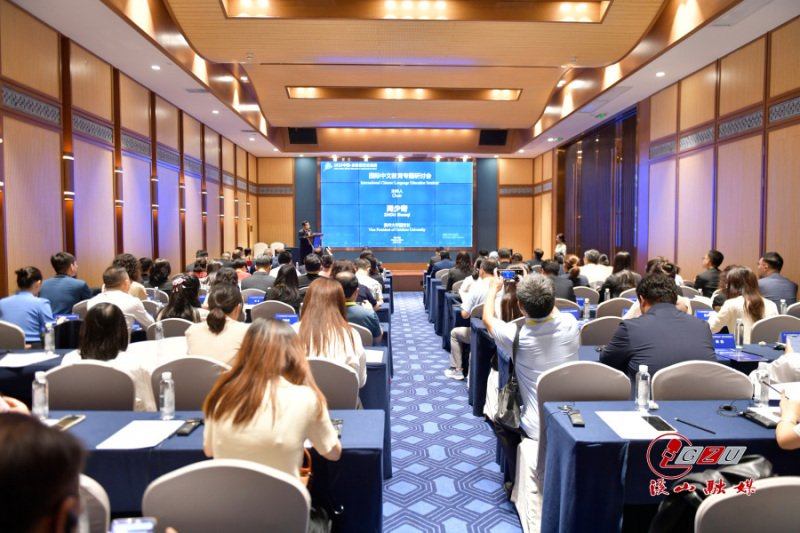
Prominent attendees included Ma Jianfei, Director General of the CLEC; Shakib Bin Ahmad Shakir, Director of the Department of Labor of the Ministry of Human Resource of Malaysia; Yang Peou, Secretary General of the Royal Academy of Cambodia; Wang Hui, Chairperson of the Guizhou Provincial Education Union; Liu Hong, President of Dalian University of Foreign Languages; Raúl Sánchez, Vice President of the University of Salamanca, Spain; Li Jiyong, Vice President of Minzu University of China; Li Jianjun, Secretary of the Party Committee of GZU; and Vice Presidents Qi Si and Zhao Liuyan of GZU. The seminar was altogether attended by more than 80 participants, including foreign guests from 9 countries, including Spain, Thailand, Singapore, Malaysia, Indonesia, Pakistan, Laos, Cambodia, and the United States, as well as representatives, experts and scholars from educational administrative authorities and renowned domestic universities.
Li Jianjun briefly introduced GZU in terms of its faculty, enrollment scale, scientific research, international exchanges, and international Chinese education. He highlighted that GZU had initiated international Chinese education in the 1980s and GZU’s enrollment of Chinese language students had increased from only a small number to more than 1,800 over the past 40 years. GZU has been consistently advancing in the realm of international Chinese education, thanks to the 16 years of support from the CAEWC. He stated that GZU has consistently upheld an open approach to education, continually fostering international exchanges and cooperation. In the future, the university will further advance its open approach, enhancing international Chinese education through initiatives like faculty development and leveraging the power of big data. This entails more strenuous efforts in areas like teaching management, scholarship programs, and the establishment and operation of overseas Confucius Institutes. GZU is committed to significantly elevating its level of internationalization in the latter phase of the “14th Five-Year Plan” and contributing to the broader educational opening-up in Guizhou.
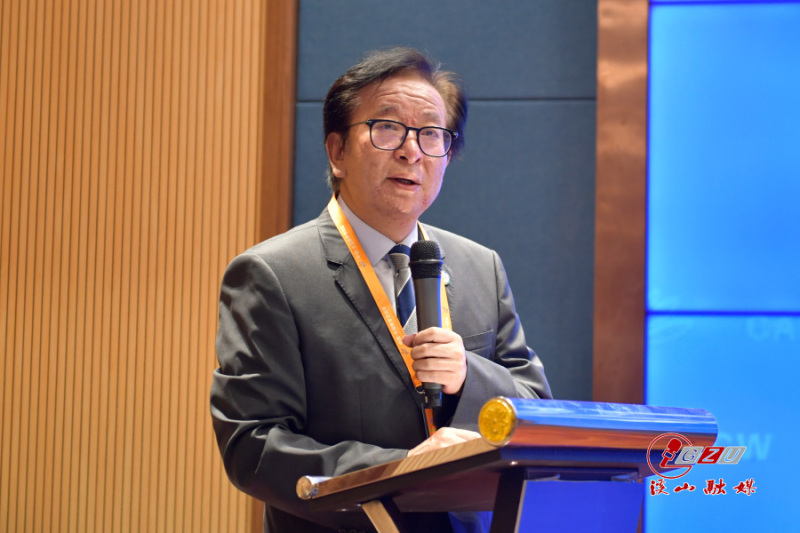
Ma Jianfei emphasized that the comprehensive strategic partnership between China and ASEAN has deepened, and the demand for Chinese language teaching in ASEAN countries continues to rise. As a good neighbor, friend, and partner of ASEAN, China always prioritizes its cooperation with ASEAN countries in promoting Chinese language education. He highlighted that future cooperation projects will mainly revolve around the following aspects: first, supporting the development of local Chinese language teachers; second, focusing on the integration of Chinese language teaching with vocational skills training; third, strengthening cooperation in digital and online education; fourth, enhancing youth student exchanges; and fifth, deepening the “Language Bridge” program. He expressed his hope to collaborate with both ASEAN and domestic partners to make a significant contribution to the advancement of Chinese language education in ASEAN countries, facilitating cultural exchanges between China and ASEAN and furthering the development of diverse and vibrant global civilizations.
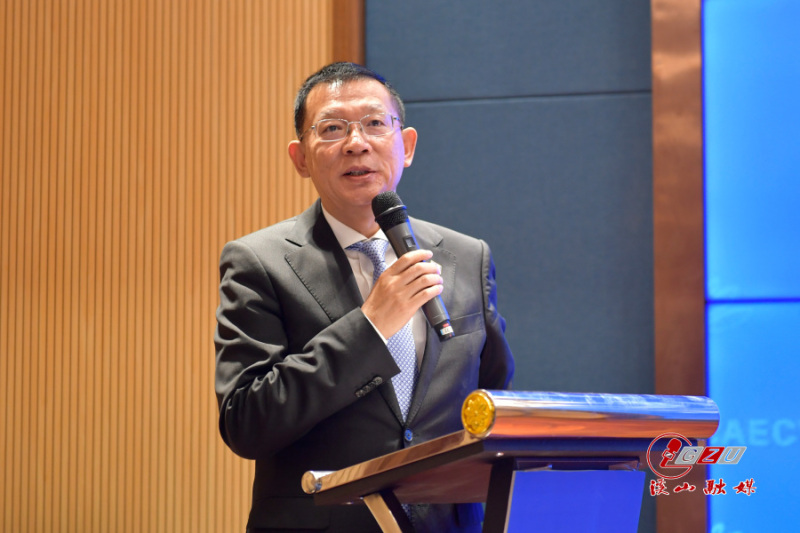
Shakib Bin Ahmad Shakir underscored that the “Belt and Road” initiative has opened up a broad space to promote connectivity and friendly cooperation among Asian and other nations. It holds tremendous potential for promoting economic development and cultural exchanges. He expressed his hope for Malaysia and China to deepen their collaboration, share experiences, and mutually learn through cooperative research, joint ventures, and technology exchanges, especially in areas like vocational education and training and technological process improvement. Such collaborative efforts will solidify the ties between the two countries, promote sustainable economic development, and serve as a positive model of international cooperation.
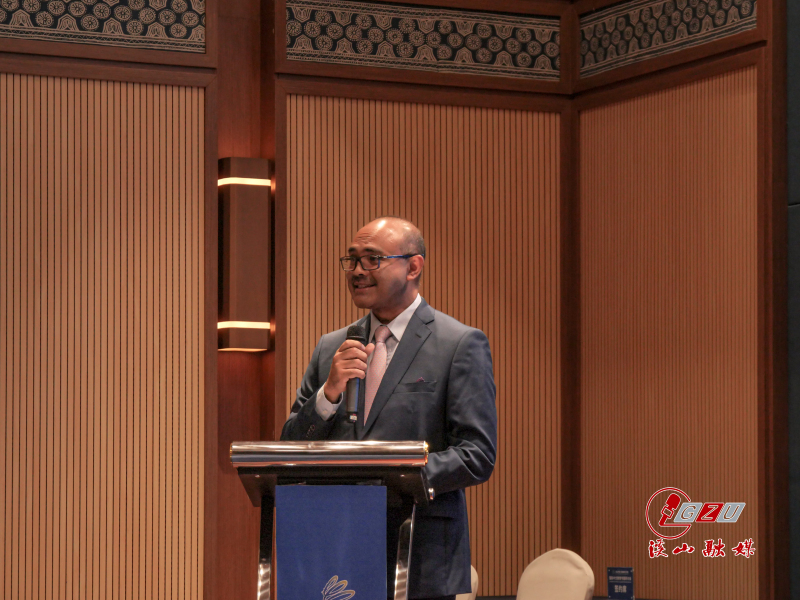
Yang Peou stressed the commitment of the Confucius Institute at the Royal Academy of Cambodia to advancing Chinese language education in Cambodia. This institute has developed from offering basic Chinese language teaching to providing a diversified range of multi-level courses, incorporating various cultural activities to promote the exchange between Chinese and Cambodian cultures. He noted that the theme of this seminar aligns with the needs for Chinese language education in Cambodia, and it will play a positive role in advancing Chinese language education in Cambodia. He expressed his hope for further cooperation with universities and educational departments in China, including GZU, in the domains of Chinese language education, vocational education, research, China-Cambodia cultural studies, and youth exchanges.
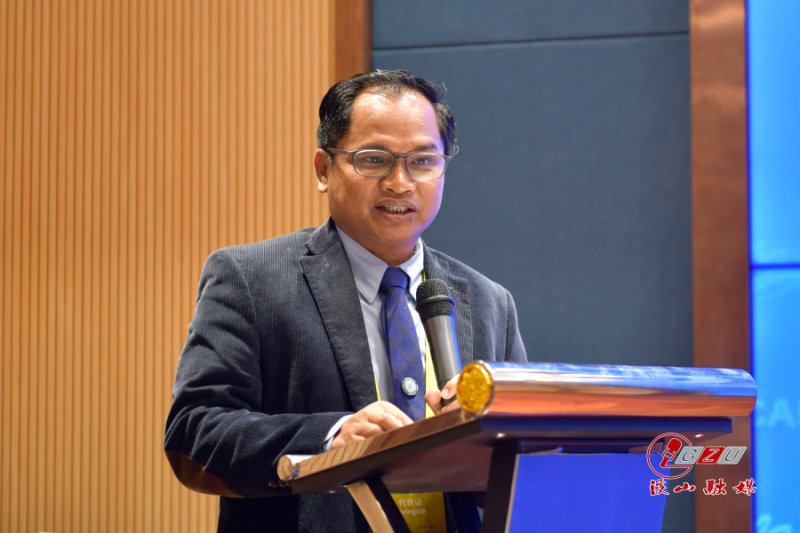
Wang Hui underlined Guizhou’s firm devotion to educational opening-up and its full compliance with relevant national and provincial requirements. Leveraging the platform of the CAECW, Guizhou will intensify its efforts in both “going out” and “bringing in” to promote international Chinese language education. She urged the guests and experts in attendance to continue supporting the educational development in Guizhou by actively creating platforms and expanding channels for Guizhou’s deeper international education exchanges with ASEAN and other “Belt and Road” countries, particularly in the field of international Chinese language education. Furthermore, she encouraged making the most of this seminar as a valuable opportunity for mutual learning, exchange, and collaboration.
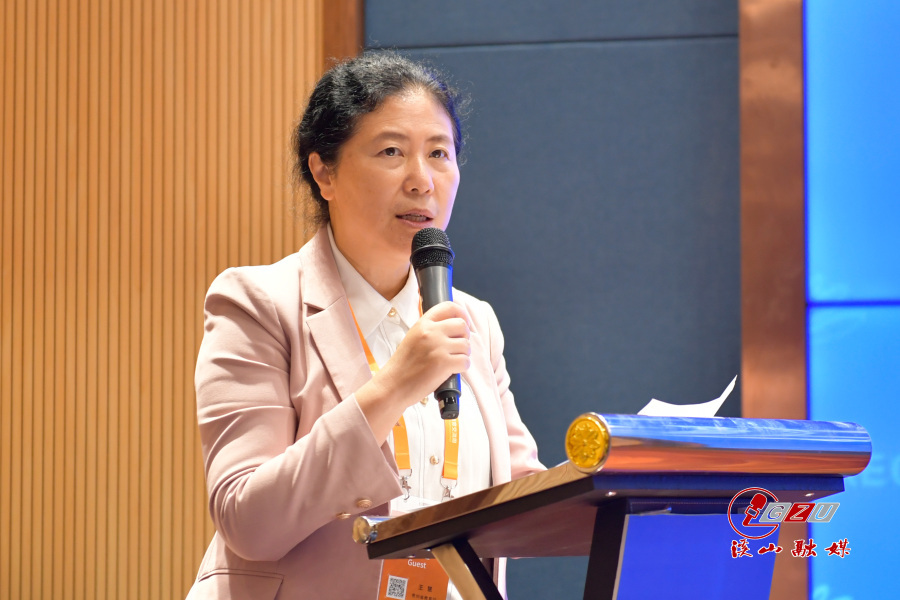
Zhao Liuyan delivered a closing speech. He regarded the seminar not only as an academic exchange platform but also a cultural feast which offers a space of sharing among experts, scholars, and teachers in the field of Chinese education from both China and ASEAN countries. He believed that this event plays a crucial role in promoting the global dissemination of the Chinese language and creating new opportunities for educational cooperation between China and ASEAN countries. He stressed that GZU is committed to strengthening exchanges and cooperation with ASEAN countries, actively promoting the internationalization of Chinese language education, enhancing teaching quality, and making a significant contribution to the worldwide promotion of the Chinese language.
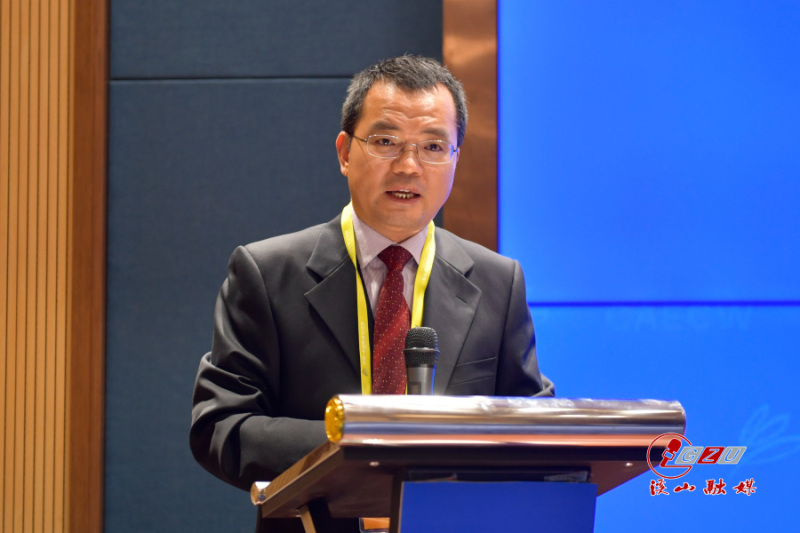
During the meeting, Zhou Shaoqi, Vice President of GZU, signed cooperative agreements with representatives from the Bankeo Teacher Training College and the Dong Kham Xang Teacher Training College in Laos as well as the Sultan Azlan Shah Polytechnic in Malaysia. Additionally, the CLEC signed an agreement with the Guizhou Provincial Department of Education. Moreover, an agreement was signed between HFO High School in Indonesia and the Affiliated Middle School of Guizhou University.
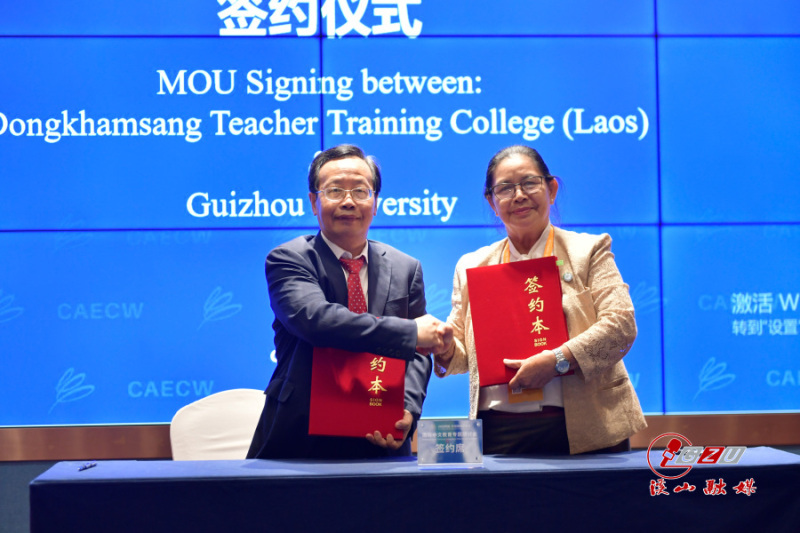
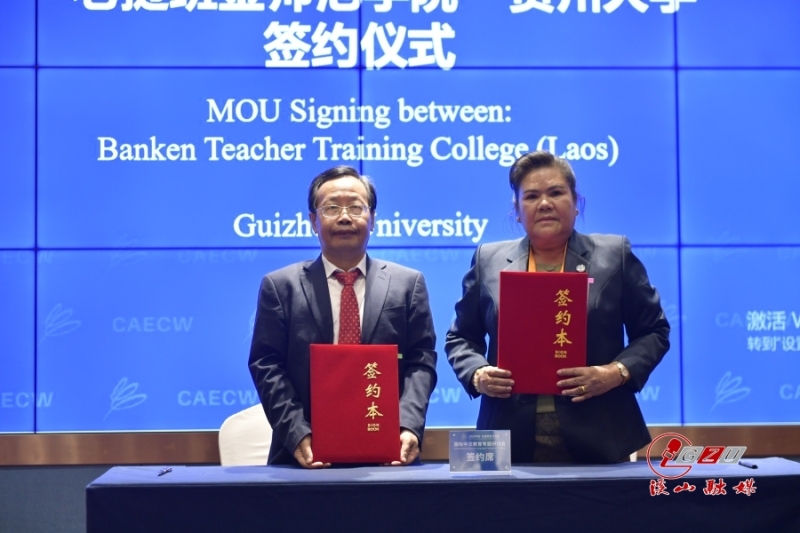
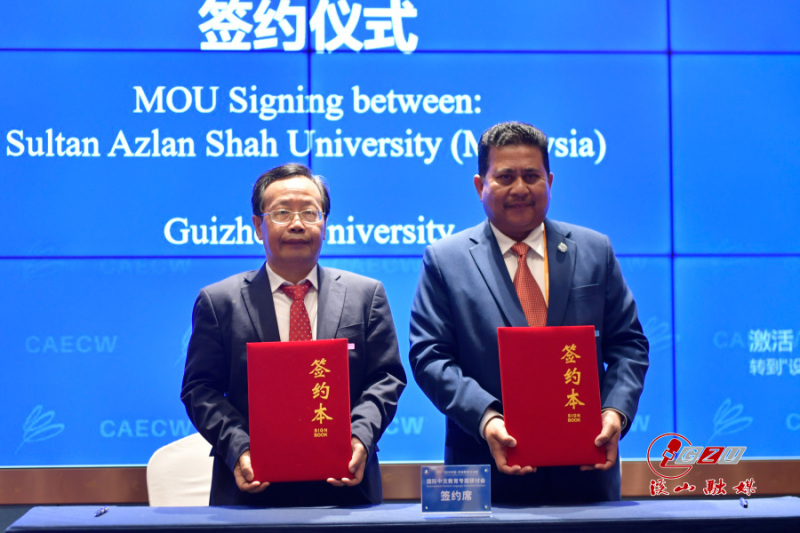
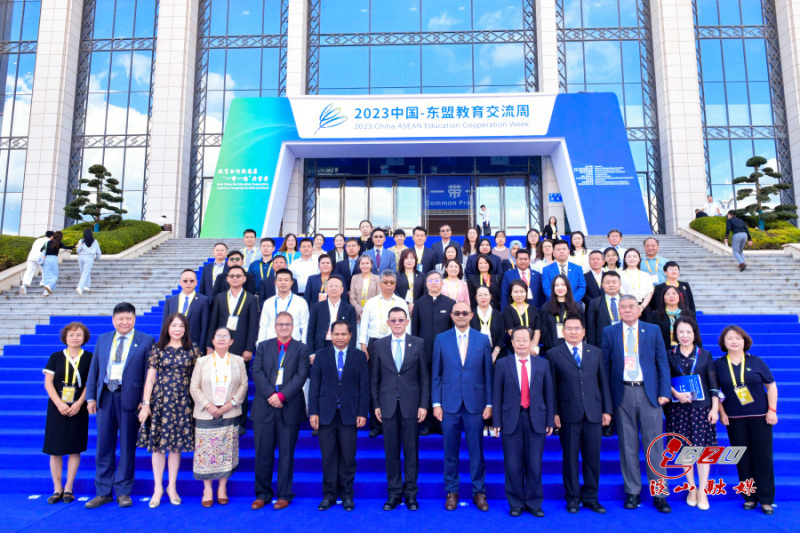
Editor: Pang Aizhong, Ning Yumei
Chief Editor: Li Xufeng
Senior Editor: Yang Nan
Translator: Jia Haibo